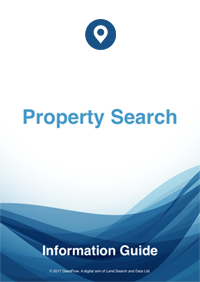Property Tenure
Contents
Overview
The concept of property tenure holds significant importance as it delineates the legal framework within which individuals possess and hold property rights. Whether you're purchasing a home, leasing commercial space, or investing in land, understanding property tenure is fundamental to navigating the intricacies of real estate transactions.
Definition of Property Tenure
Property tenure refers to the legal framework governing the ownership and use of land or real property. It outlines the rights and responsibilities associated with ownership, including the duration of ownership, the right to use the property, and any restrictions or conditions imposed by law.
Types of Property Tenure in England and Wales
Freehold Tenure
The legal name for freehold tenure is Fee Simple Absolute in Possession, but most people refer to it simply as Freehold Tenure. Freehold tenure represents absolute ownership of land and any buildings on it. Owners of freehold property have full control over their land, with no time restrictions on ownership. They can use, sell, or pass down the property to their families as they see fit. Freehold ownership is typically associated with dwelling houses.
Leasehold Tenure
The legal name for leasehold tenure is Term of Years Absolute in Possession, but more people know it simply as Leasehold tenure. A property with Leasehold tenure grants the right to occupy and use a property for a specified period, as stipulated in a lease agreement. While leaseholders have exclusive possession of the property for the duration of the lease, they do not own the land outright. Leasehold arrangements are common for flats, apartments, and commercial properties. At the end of the Lease the property reverts back to the freehold, unless an application has been granted to extend the Lease.
Commonhold Tenure
Commonhold is a relatively new form of property tenure introduced by the Commonhold and Leasehold Reform Act 2002. It applies primarily to residential properties, allowing individual unit owners within a development to collectively own and manage the freehold of the entire property. Commonhold provides homeowners with greater control over shared spaces and amenities.
Check Your Own Property Tenure
Your Property Tenure is described in section A of the Title Register.
For example:
A: Property Register
This register describes the land and estate comprised in the title.
WEST MIDLANDS : WOLVERHAMPTON
1 (02.09.1998) The Freehold land shown edged with red on the plan of the above Title filed at the Registry and being 73 James Street, Wolverhampton (WV4 8BH).
Key Considerations in Property Tenure
Rights and Obligations
Property tenure delineates the rights and obligations of property owners, including responsibilities for maintenance, repairs, and adherence to legal restrictions or covenants.
Financial Implications
The type of property tenure can have financial implications for both buyers and sellers. Freehold properties may command higher prices due to the absence of leasehold obligations, while leasehold properties require ongoing lease payments and potential service charges.
Legal Protection
Understanding the legal protection afforded under different property tenures is crucial. Leaseholders, for example, may have statutory rights to extend their leases or collectively purchase the freehold under certain conditions.
Title Register
The Land Registry Title Register holds data relating to the property ownership, purchase price, mortgage, tenure, covenants, rights of way, leases and class of title.
£19.95Title Plan
The Title Plan shows an outline of the property and its immediate neighbourhood, and uses colours to identify rights of way, general boundaries and land affected by covenants.
£19.95Associated Documents
Deeds creating Restrictions, Covenants, Easements, etc. are often kept digitally by the Land Registry and made available for sale due to their invaluable detail and content to assist in further understanding the Restrictions, etc.
£29.95


